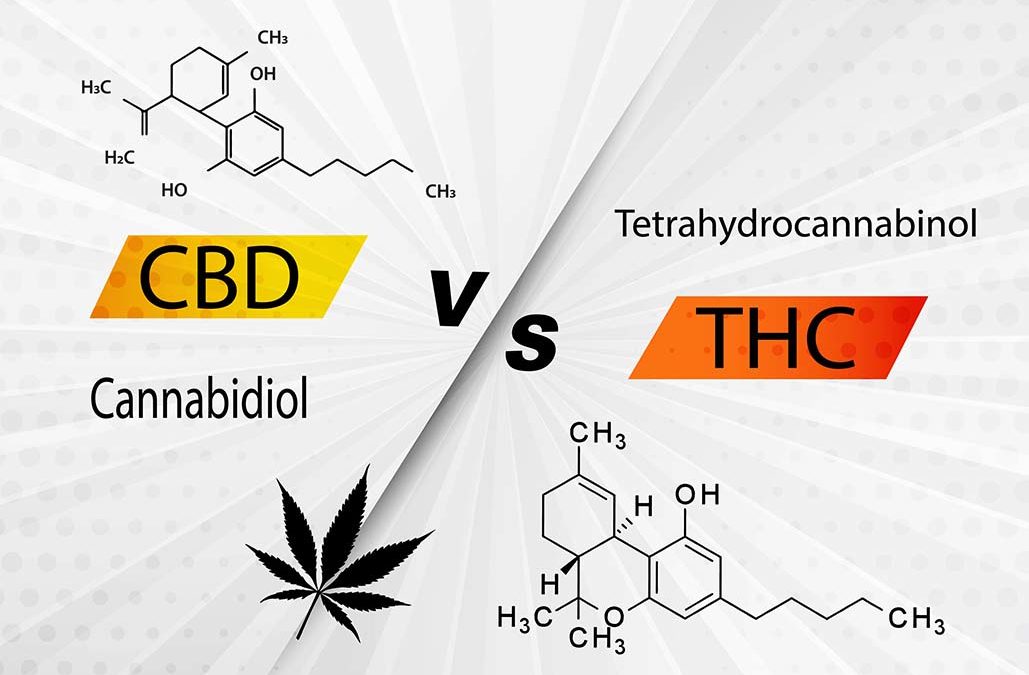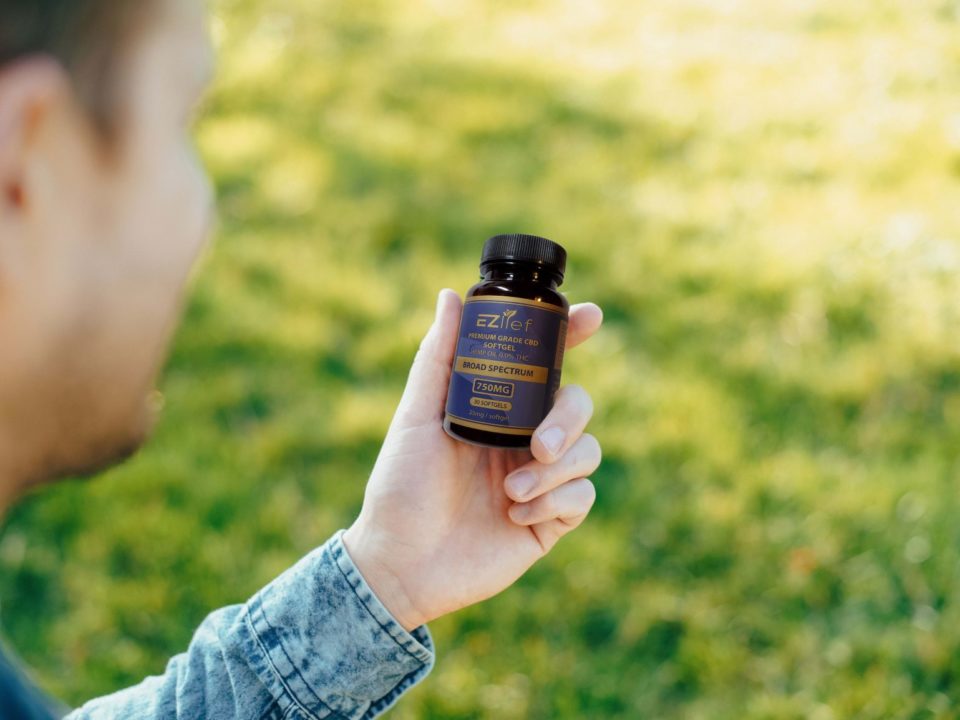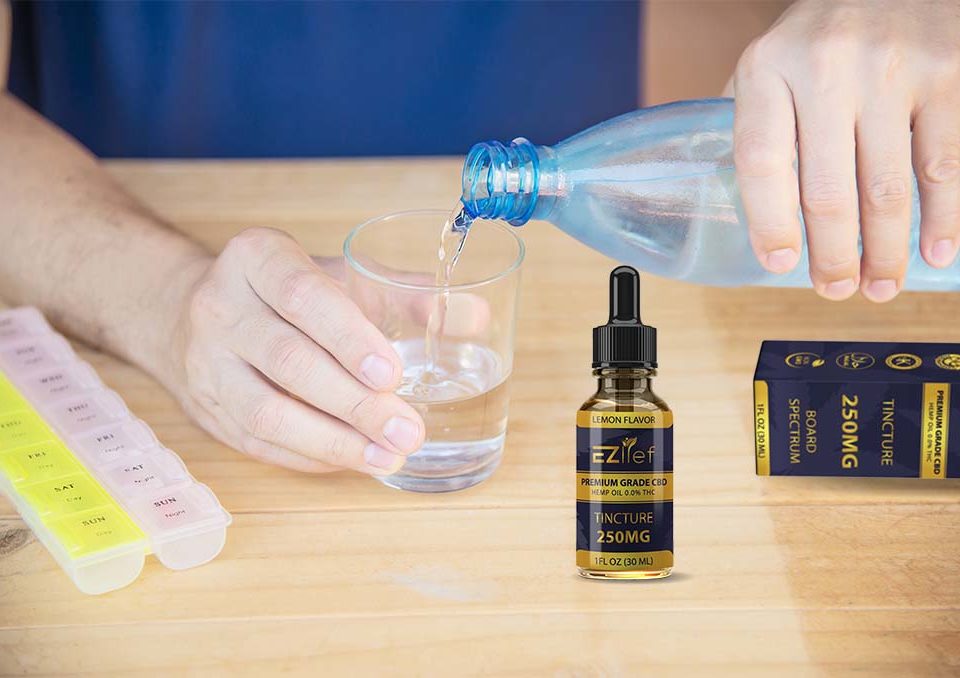CBD vs. THC: The Differences, the Benefits & the Legality.

How CBD Plays a Role in the Immune System
June 17, 2020
CBD For Focus: A Solution for Working and Studying from Home During COVID-19
September 1, 2021CBD vs THC are two of the most studied phytocannabinoids in the plant world. Found in hemp and cannabis, they both interact with the body’s endocannabinoid system, but they also produce two distinct responses. Besides one having limited legality, these two compounds share many characteristics and also differ in other areas.
CBD vs. THC: Plant Differences
CBD and THC are two of 545 compounds in hemp and cannabis that have a remarkably similar chemical structure. Scientists isolated CBD first in 1940. THC, although more notable until the last several years, wasn’t isolated until 1963. The only difference in the phytochemical composition is the order. Both share the C21H330O2 molecular structure, which contains 21 carbon atoms, 32 hydrogen, and two oxygen molecules.
The phytocannabinoids also follow the same biosynthesis or pathway, which is a long way of explaining how they grow. Cannabigerolic acid (CBGA) is the founding phytochemical for all cannabinoids. Without CBGA, there wouldn’t be CBD or THC. Some would consider this a shared parentage.
As mentioned, the significant difference chemically is in between CBD and THC is the structure of the formula. Analytical Cannabis explains,
“Where THC contains a cyclic ring, CBD contains a hydroxyl group. It is this seemingly small difference in molecular structure that gives the two compounds entirely different pharmacological properties.”
These variances may explain why CBD is beneficial and doesn’t cause a “high” or extreme euphoria like THC.
How CBD vs. THC Affect the Body
The most noticeable difference between CBD and THC is how these phytochemicals affect the body. Tetrahydrocannabinol, or THC, is the only known phytocannabinoid to produce a psychotropic response or “high.” Cannabidiol, or CBD, offers a calming effect but doesn’t cause the users to feel extreme euphoria. The popular plant compound won’t lead to anxiety or paranoia like THC does, especially in elevated doses.
CBD vs. THC and the Endocannabinoid System
Although the two compounds have a strikingly similar chemical code, they interact with the endocannabinoid system differently. Experts don’t know completely understand these differences. But they know that THC attaches to the cannabinoid receptors, while CBD doesn’t.
Instead, the cannabinoid that doesn’t produce a psychoactive response activates and interacts with the receptors without attaching to them. This difference in the interactions may explain how the two compounds share so many properties but provide two separate reactions.
CBD vs. THC Medical Benefits
Like everything involving these two plant chemicals, they share many of the same benefits. Many consumers purchase CBD products for the same reasons they buy similar items with THC. Both may offer relief from sore muscles following an intense workout or a long day at their job.
Along with helping relax the muscles, CBD assists with slowing down the mind and reducing anxious feelings. The popular cannabinoid that doesn’t produce a high may lower stress levels and promote relaxation throughout the body. Another reason CBD is selling well is its sleep benefits.
Consumers looking to sleep better without the aid of prescriptions or other unnatural chemicals prefer the organic, GMO-free hemp product to help them get a better night’s rest. Additionally, CBD has a topical component other than massaging sore muscles. The compounds in the hemp plant combined with the cannabinoids, like CBD, may help moisturize the skin and reduce acne breakouts.
So, if you’re noticing more CBD beauty products, it’s because of the topical application’s characteristics that can help the skin glow naturally without harmful chemicals or invasive procedures. The compound is also popping up in hair care items for similar properties.
THC provides many of these same benefits at a higher level. The cannabinoid’s similar, but the stronger response may explain why it has more extreme side effects. While some users prefer the “hard stuff,” more consider CBD the better option.
CBD vs. THC Side Effects
CBD and THC share some adverse reactions. However, most consider CBD to have milder side effects. The unpleasant responses from high doses of CBD include,
- Irritability
- Upset stomach, such as nausea and diarrhea
- Red eyes (From smoking hemp flower only)
- Extreme drowsiness (Not a side effect when taken for sleep)
The adverse responses to THC often include,
- Increased appetite (Also a potential benefit for people with gastrointestinal disorders and patients undergoing chemotherapy or with HIV/AIDS)
- Temporary paranoia
- Heightened anxiety (in some users)
- Delayed reactions
- Dry mouth
- Red eyes (From smoking the flower)
- Short-term memory loss
- Extreme euphoria
- Psychological withdrawal symptoms with long-term or heavy use
As mentioned, these responses can vary depending on the method of application. For example, extreme paranoia and euphoria are more familiar with edibles that can contain high doses of THC with each serving. Even experienced users can experience these reactions with highly potent cannabis cultivars. Additionally, the response times vary by method. Smoking and vaping, THC, and CBD only last for about an hour. When you consume edibles or a tincture, they can have a duration of several hours.
CBD vs. THC Legality
For consumers, one of the biggest concerns is the legality issues between CBD and THC. Until Congress passed the 2018 Farm Bill and the president signed it on December 20, 2018, hemp cultivation was illegal. The change in legislation opened up a whole new world for hemp-derived CBD. Until 2018, it could only come from the stalk, stems, and leaves of imported plants.
Cultivators can legally extract the potent compounds from the hemp plant’s flowers, which holds most of the CBD. THC isn’t as straightforward. Hemp plants containing less than .3% THC are legal under the 2018 Farm Bill. Products containing even a drop over .3% is mostly illegal. But wait, there’s more. A few states have opted out of the federal hemp laws and aren’t permitting hemp cultivation, sales, or use. This includes Idaho and North Dakota.
However, legality is even more complicated. The products with a higher THC count aren’t legal federally, but they are permissible in more than a dozen U.S. states. Flowers, oils, vape juices, concentrates, edibles, and topical applications are allowed for medical and recreational purposes, depending on the state.
To add more confusion, each state has different rules regarding THC potency. For example, Alabama’s medical program only allows up to 3% THC, and Georgia’s limits it to less than 5%. CBD is the only compound from the hemp and cannabis plants with a universal .3% level of THC.
CBD and THC have many similarities and differences. Both are all-natural plant extracts from hemp and cannabis that have beneficial properties and help people with different wellness needs. Times are changing with laws in the U.S. and around the world.
As scientists and medical professionals learn more about the potent compounds, there may be common legal grounds for both phytocannabinoids in the near future. Until then, it’s perfectly legal to purchase high-quality CBD products. Buy EZlief CBD oils, edibles, and topicals today and relax a little better at the end of your day.
CBD vs THC, CBD vs THC, CBD vs THC.





